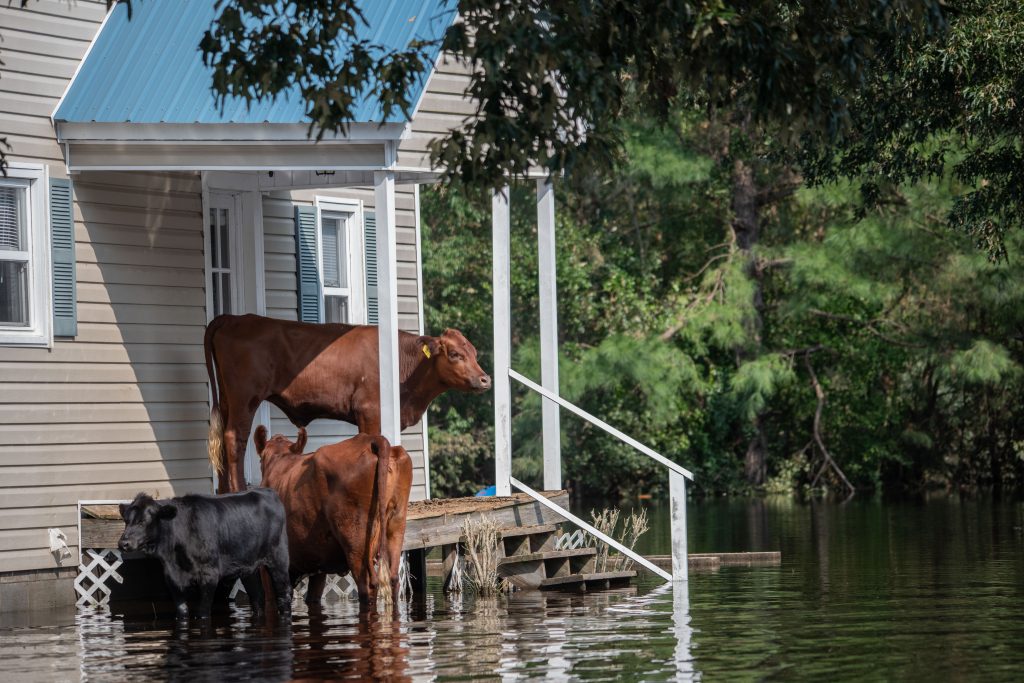Why California Farmers Are Purposely Flooding Their Farms
California Farmers are flooding their farm fields on purpose to take advantage of the record rainfall the state received this winter.
This article is more than 2 years old

After years of record drought, California farmers are taking proactive measures to use every last drop of the historical rainfall they saw this past year. According to California Water Watch, the state’s precipitation is more than seven inches above average. Many parts of the state have received twice their average rainfall in the 2022-2023 water year, and farmers like Don Cameron are taking advantage of this recent deluge.
Recently, AP reported that Cameron, the general manager of Terranova Ranch, plans to draw 300 acre-feet of water per day from the North Fork of the Kings River to refill the groundwater basin that serves as his only source of irrigation for his crops. He is a trailblazer in the technique of on-farm recharge or flooding agricultural lands during rainy seasons to aid in groundwater basin restoration.
Indeed, with the potential for flooding in small towns and rural communities this season, Gov. Gavin Newsom signed an order this month making it easier for California farmers to divert flood water to their fields.
Why would California farmers flood their fields on purpose?
Although it may appear to be paradoxical, there are various reasons why this strategy has gained favor.
With the exception of this year’s historic rainfall, California has been contending with serious water issues recently, with the worst drought in history having taken place in 2021. For starters, flooding replenishes groundwater supplies, which are essential for irrigation during dry seasons. California farmers who flood their fields during the rainy season enable extra water to soak into the ground and recharge the groundwater supply, which they may subsequently draw into during dry seasons.
Second, flooding can aid in managing weeds and pests that can harm crops. California farmers can drown out weeds and minimize the population of insects that might destroy their crops by flooding their fields with water. This strategy benefits rice farmers who rely on flooding to manage weeds and provide habitat for ducks.
Finally, floods can aid in the improvement of soil quality. Flooding fields allow water to transfer nutrients and organic matter into the soil, improving its structure and fertility. As a result, crops will be healthier, and yields will be better.
Even with these advantages, flooding has significant disadvantages as an irrigation strategy. It may be expensive and labor-intensive since farmers must build and maintain levees to restrict the water. Flooding may also cause land erosion and water contamination if not controlled effectively.
Of course, the decision to flood a farm is not one that farmers make lightly. But with climate change and water scarcity increasingly impacting agriculture, flooding is becoming a more viable option for many producers. By embracing this technique, farmers are adapting to the challenges of a changing climate while protecting their farms’ long-term sustainability for future generations. By managing their water supplies, controlling pests, and enhancing soil quality, California farmers are rising to the challenge of producing food in the face of daunting environmental obstacles.











